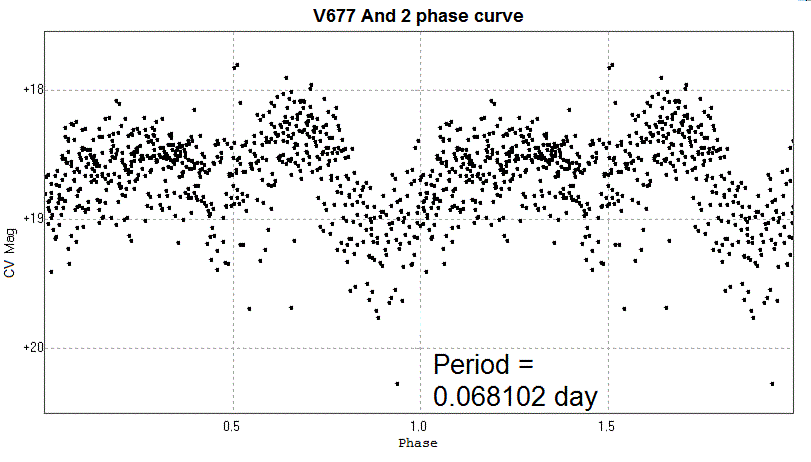Although it has no AUID number, probably because of its faintness, I noticed V677 And was visible in stacked images taken with an iTelescope machine (iT21). Because it is in the field of V455 And, which I have been observing, I have measured it on my images of V455 And.
Little is known about this star. There was a discovery of it announced in ATel #1741, and mention of it in 3 other ATels.  Using the Mt. Palomar telescope, Quimby et al (ATel 1750) found
Using the Mt. Palomar telescope, Quimby et al (ATel 1750) found
"The spectra (340-1000 nm) reveal numerous emission lines at zero redshift including H-Balmer, HeI, HeII, and CaII H&K features. These features are typical of Galactic dwarf novae."
So far, I have found (using ANOVA in PERANSO) a periodic signal of 0.068 days. A 2 phase light curve is attached. There is a very large amount of scatter, due to the faintness of the star and possible flickering.
The data was colllected using 40 to 60 second integration times on my prime focus f/4.3 29 inch reflector in suburban Concord, CA on 3 nights. Observations occurred on JD 2457283, 7284 and 7286. If you have access to a 20 inch or larger telescope, this object is worth study (especially if you can get V455 And in the same field).
Lew



Hi Lew,
when checking my CCD images (Bradford Robotic Telescope Tenerife) from the region around V455 And I could identify V677 And on four images brighter than magnitude 19.
07/29/2014
09/24/2014
08/25/2015
09/14/2015
Best Regards
Klaus